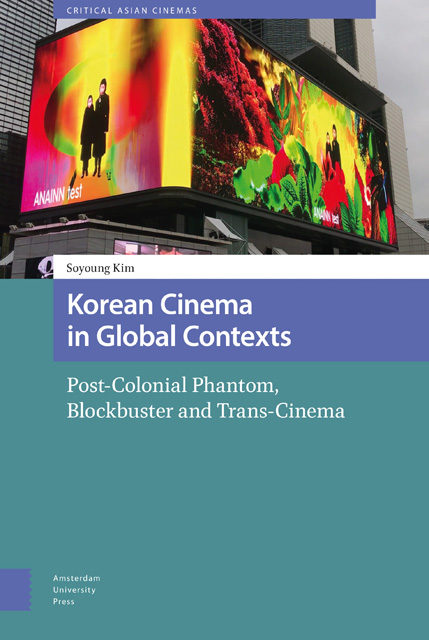8 - Postcolonial Genre as Contact Zone: Hwalkuk and Action Cinema
Published online by Cambridge University Press: 16 November 2022
Summary
Abstract
Shifting the focus from a doubled vision of Europe and Asia to that of Hong Kong and Korea, this chapter aims to transform the grounds of comparison and contribute to inter-Asian cultural studies and film studies by taking a look at the Hong Kong connection in Korean action movies, or hwalkuk. As soon as Korean action movies catch the eye, one enters the uncanny contact zone crowded and haunted by various forces. Korean action movies provide a space contested by Japanese swordplay, Hong Kong action and Hollywood action.
Keywords: action genre, contact zone, comparative film studies, hwalkuk
Spectres of Comparison
South Korean cinema has recently won attention on international film circuits in the form of either art cinema or the blockbuster in the Korean mode. The commercial releases of Chunhyang (2000), Memento Mori (1999), Nowhere to Hide (1999) and Shiri (1999) in North America as well as in Asia and Europe mark a new momentum for the Korean cinema. Chunhyang is an art-house film. As a teen horror film, Memento Mori invites cult fans locally, at festivals, and on the art-house circuit. Nowhere to Hide and Shiri, however, are action movies. For the last few years action movies featuring gangsters have been topping the box office in Korea. This is unprecedented. Hitherto, action cinema or hwalkuk survived at the margins of the film industry, which had largely sustained itself by privileging melodrama, comedy, and female spectators.
The Hong Kong-Korea connection was formed in 1960s and has persisted to the present day. The 1970s were a pivotal time when two modes of connection were established: co-production (including funding, use of locations, co-directing, and mixed casts) and generic appropriation. Hong Kong action itself resurfaced in the Korean market towards the end of the 1980s with the release of A Better Tomorrow (1986) and As Tears Go By (1988) as “Hong Kong noir.” Recent Korean hits like Shiri (1999) and Nowhere to Hide (1999) were repeatedly compared to Hong Kong action movies when they were released in America. A critic in The Village Voice describes Nowhere to Hide as “an ongoing series of epic foot pursuits that transpire so breathlessly that a slow-mo swashbuckler like Chow Yun-fat would be left wheezing in the rain.”
- Type
- Chapter
- Information
- Korean Cinema in Global ContextsPost-Colonial Phantom, Blockbuster and Trans-Cinema, pp. 159 - 174Publisher: Amsterdam University PressPrint publication year: 2022



